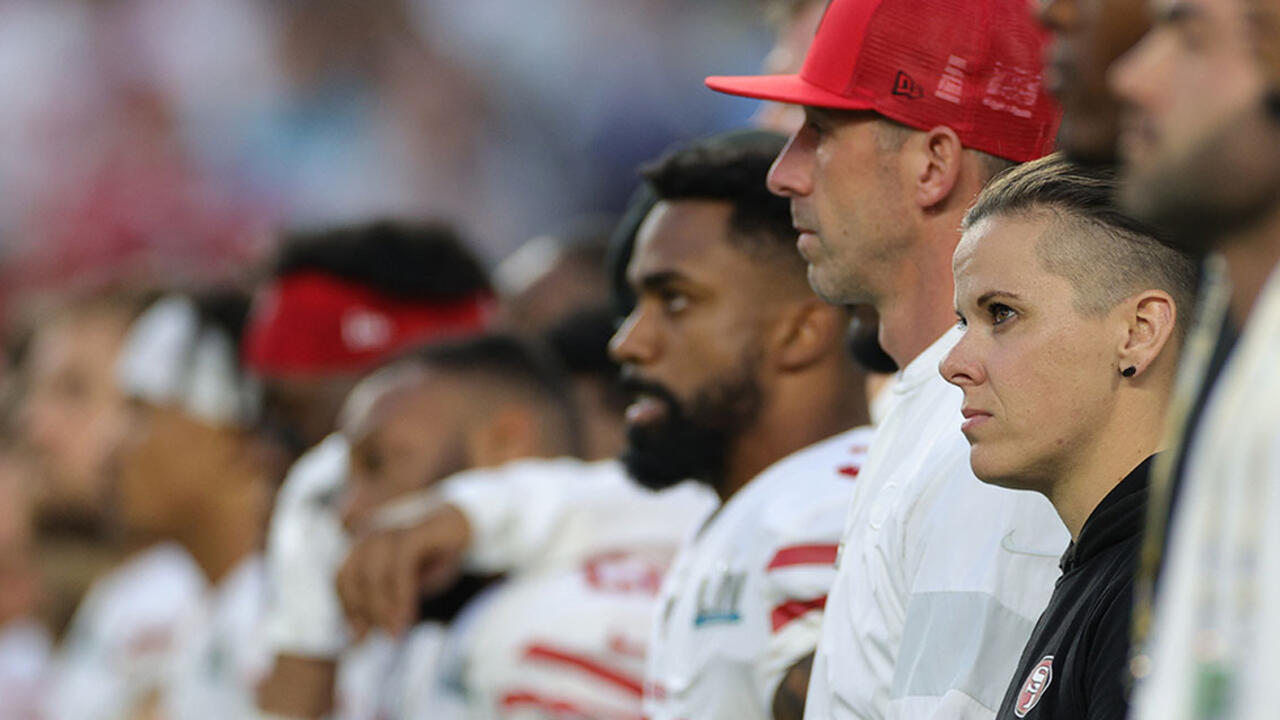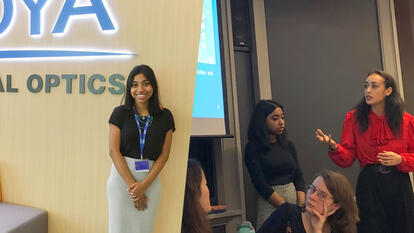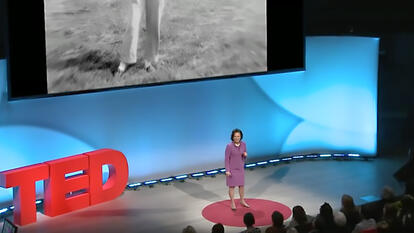49ers’ Katie Sowers Is First Woman to Coach in a Super Bowl; Trailblazing Sportswriter Melissa Ludtke ’73 Reacts

On February 2, football fans witnessed sports history: Katie Sowers, an assistant coach for the San Francisco 49ers, became the first woman to coach in the Super Bowl. Melissa Ludtke ’73, who made sports history herself in 1978 when she took Major League Baseball to federal court and won equal access for women reporters, talks about the impact of Sowers’ career path and the increasing visibility of women in the world of professional sports.
Q: What was your initial reaction when you heard Katie Sowers’ story? Did you recognize elements of your own career?
Melissa Ludtke: It took me a while to hear her story, which in some ways speaks to the sense that often stories today about women’s firsts aren’t necessarily as celebrated or as told as they might be. But once I did hear about her, I read as much as I could about her and her career and how she got to where she is. I recognized a lot of elements from my own career. There was a time when I thought like her growing up—that these were not options for us (women). My mother, who graduated from Wellesley in 1945, shared her love of baseball with me. Though I was a girl, I felt like I belonged, in some way, in the sport, even though girls weren’t permitted to play baseball then. I never imagined that one day I would write about baseball as my job. I was really touched by how Katie had written in her journal when she was a girl about it being a dream of hers to one day be involved in football in some way. Now she’s realized her dream.
Q: You’ve said that your MLB victory paved the way for more women to have successful careers in sports media. How do you see Katie Sowers’ position with the 49ers adding to this narrative?
Ludtke: Title IX has enabled women and girls to have experiences that in my childhood most girls weren’t able to have in terms of competing in sports. So as women, they have the knowledge and experiences that prepare them to have positions like Katie’s. And in fact, they already are doing similar jobs in other professional sports.
This season the Yankees have a woman as batting coach. So this is happening, not only with Katie in football but in basketball and baseball. I’m not so sure about hockey. But yes, this is a narrative that is going to continue to play out in many other women’s stories as we move ahead.
Q: What do women’s voices and participation add in the athletic sphere, as journalists, coaches, or in other leadership roles?
Ludtke: I am reminded of what tennis writer Grace Lichtenstein wrote: “The secret is women make better sportswriters than men. They don’t come to sports writing with false illusion about knowing baseball better than the players. They ask better questions and probe more sensitive areas than run, catch, and throw.”
I’ve learned from [psychologist and author] Carol Gilligan about women having a different voice and women’s more relational observations, and how this can lead to women tending to see connections between members of teams perhaps differently than most men do.
Q: How have things have changed for women in sports since your career-altering battle? What do you see happening in the future?
Ludtke: Since the 1970s, the level and amount of opportunities women have to compete in sports have increased enormously. But given girls’ and women’s high levels of accomplishment in sports, they deserve much more media attention than they receive, and professional women athletes aren’t paid anything close to what they should be paid. Yet, I’m convinced that women’s sports has an audience and will flourish.
Photo: Katie Sowers, San Francisco 49ers offensive assistant coach, looks on during the national anthem at Super Bowl LIV against the Kansas City Chiefs.



